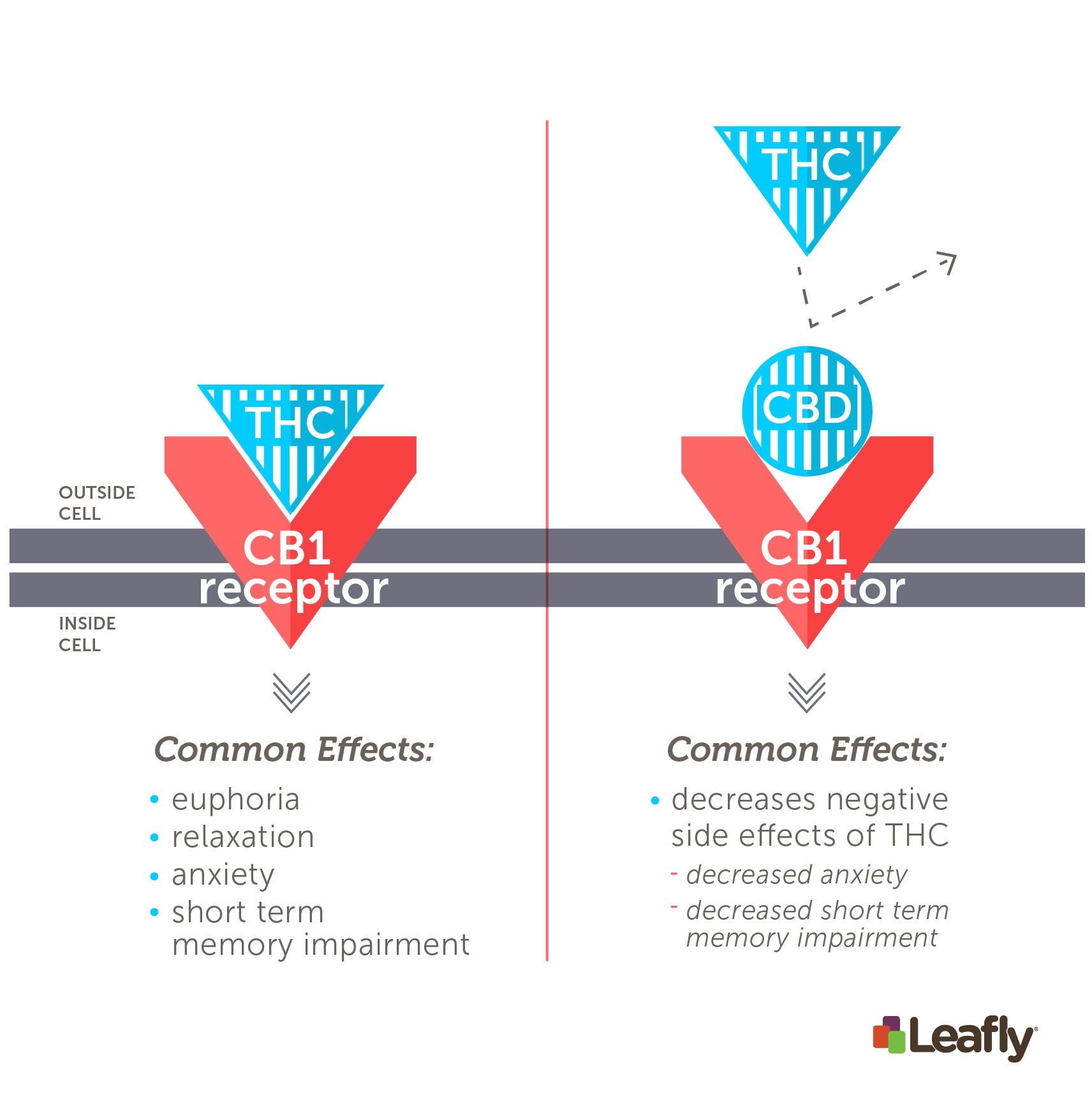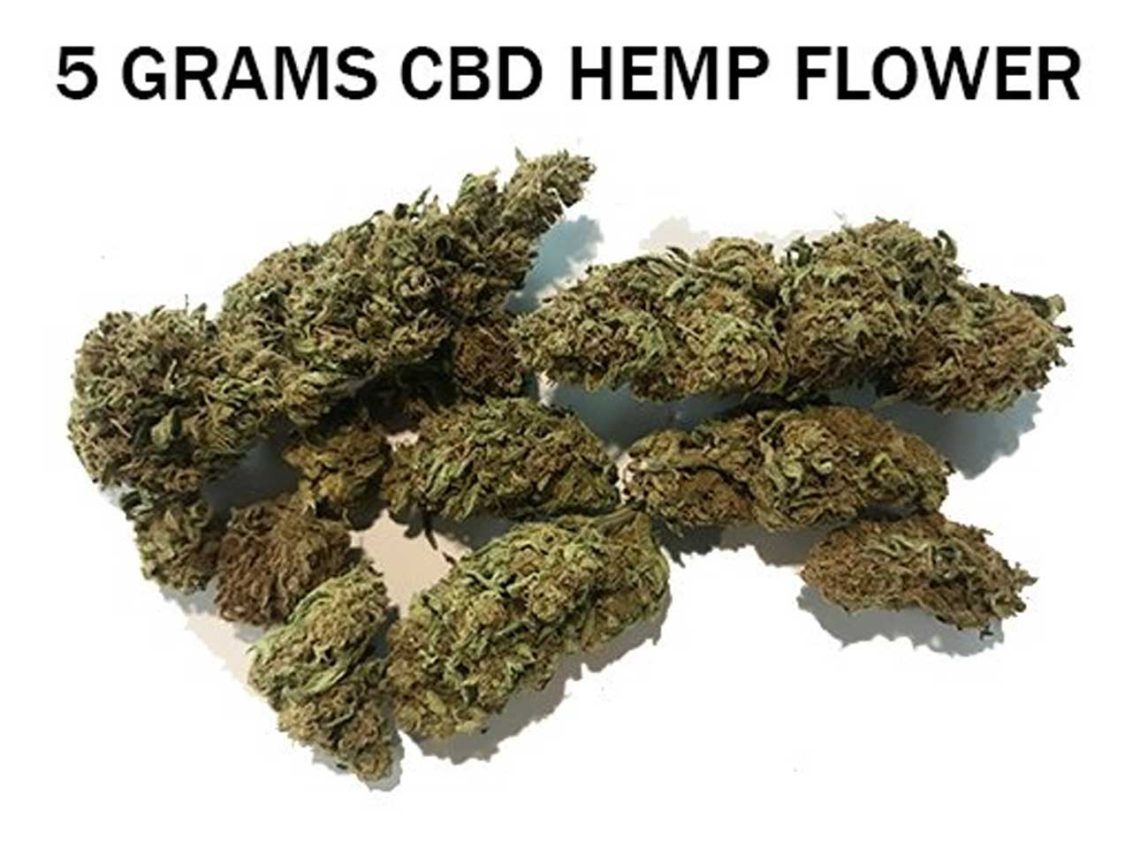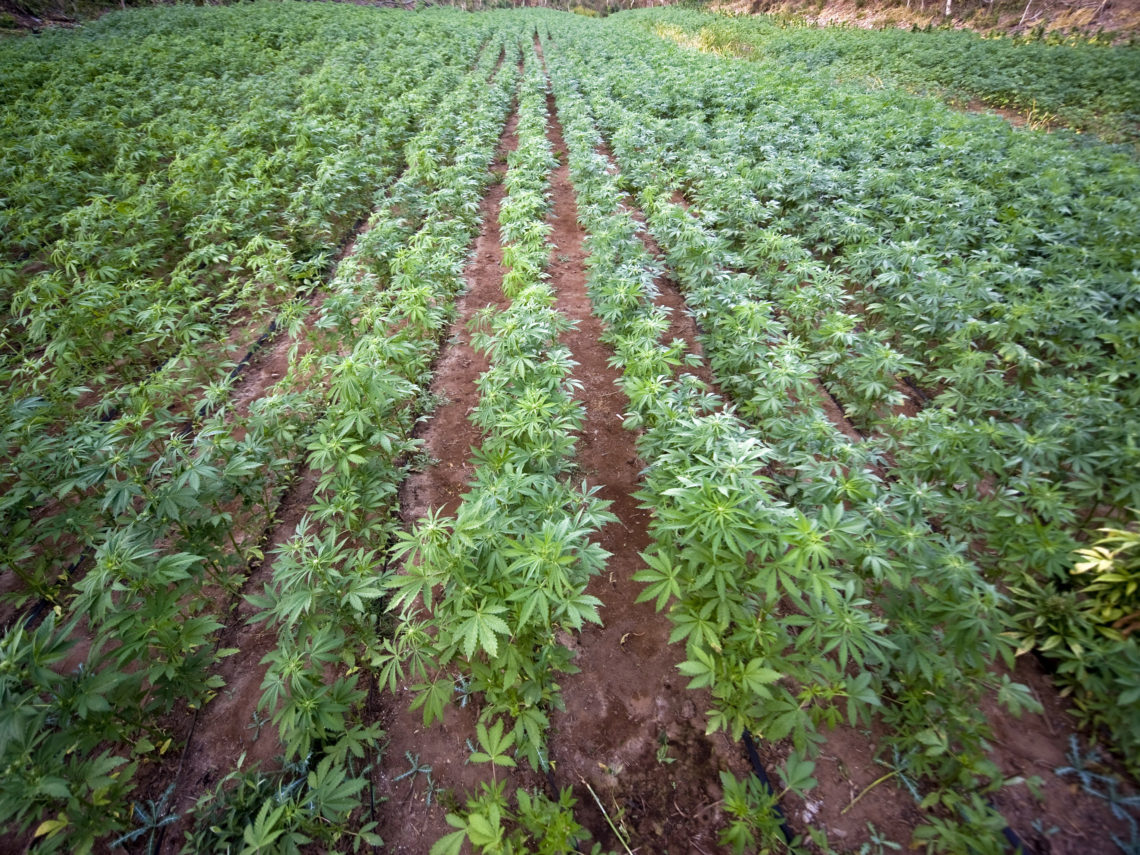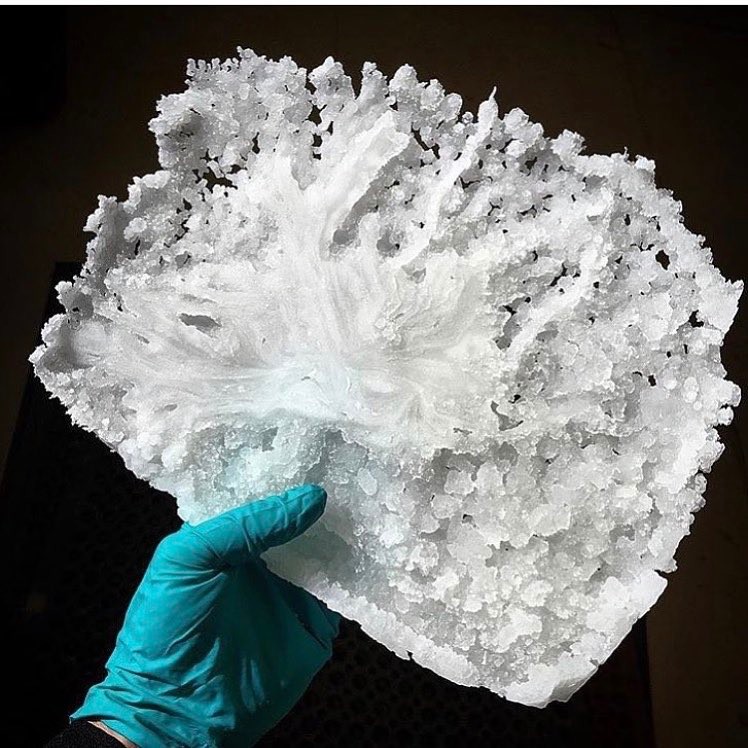Category: Informational Links
Beginners Guide to CBD Flower
For some, cannabis flower isn’t some tea. Maybe this is on the grounds that it makes one feel excessively neurotic or on edge. We don’t suggest discounting cannabis flower totally. With the end goal to dodge the tornado of nervousness and suspicion, select CBD-rich flower. CBD-rich flower offers the majority of the useful impacts of high-THC flower without the fit of anxiety initiating impacts. CBD-rich flower can do everything from decrease aftereffects to migraines, notwithstanding for clients with high resistances. CBD flower offers customers a lucid experience with unfathomable advantages.
What is CBD Flower?
CBD flower is cannabis bud that enables individuals to unwind without getting high. Truth be told, in the event that you do get a handle on your high from a high THC item, you can even utilize CBD to convey you down to equilibrium. Today’s indica and sativa strains contain as much as 25 percent THC, significantly higher than mother and father’s schwag from the 60s. Tetrahydrocannabinol (THC) is only one of numerous cannabinoids found in the cannabis plant and CBD additionally makes up a sizable part. Some cannabis cultivators have selected to develop for cannabidiol (CBD) for a helpful and non-psychoactive experience. While CBD flower contains low levels of psychoactive THC, the large amounts of CBD manage the impacts of THC.
The Entourage Effect
While many cannabis consumers may choose to opt for CBD-only products like CBD oil, CBD-rich flower can have better effects because of the synergy that occurs between THC and CBD. When smoking or vaping the entire cannabis flower, you get a wide breadth of therapeutic cannabinoids and fragrant terpenes that work together to influence each other’s actions. CBD, for instance, can enhance THC’s pain relieving and epilepsy reducing properties. CBD also encourages THC to stay longer in the system, helpful for people with chronic conditions.

Medicinal Value of High CBD and Low THC Flower
High CBD and low THC flower can alleviate chronic pain, inflammation, seizures, and anxiety. Specifically, CBD flower can help reduce symptoms associated with multiple sclerosis, fibromyalgia, arthritis pain, Dravet’s Syndrome, and some anxiety disorders. When smoked or vaped, CBD flower can deliver immediate effects for acute symptoms. Since consuming CBD flower requires inhalation, it may not be the best consumption method for people with respiratory problems, children or the elderly.
Determining Dose of CBD Flower
Everyone’s ideal dose of CBD flower is different. Every strain will affect everyone differently. Since strains have differing ratios of CBD to THC, consumers can try out many to determine what works best for them. Some people may be more sensitive to THC than others. They need a CBD flower with a high ratio of CBD to THC for less of a high. Start off by consuming low doses of high CBD cannabis flower. A low dose can be one to two inhalations from joint, vaporizer or water pipe. While it isn’t an exact science, the slower you go, the better you can determine your tolerance for THC and CBD.
Buying cannabis flower solely based on a high THC is (and should be) an outdated approach to cannabis consumption. If you’re buying liquor, do you always opt for white lightning given its high alcohol percentage? Cannabis consumers are growing wise to the unique effects of high-CBD flower, which can enhance the overall experience. CBD-rich flower boasts robust relaxing effects that can benefit users that rely on indica strains for its mellowing effects. Strains including Charlotte’s Web, Sour Tsunami, and AC/DC (to name a few) aren’t psychoactive, but offer a potent pain-relieving, anti-inflammatory, and anxiety-reducing effects due to the high amounts of CBD in the flower.
Tinctures Work better
Tinctures still are the best proven way to get CBD without risking the chances of popping on a drug test for THC. Not only are tinctures safer, no smoke, do not smell, and have less risk for testing positive on a drug test, but they often beat the amount of CBD inside hemp flowers by 25-45% on average. Check out the Vetted list of companies for high CBD tinctures that are safe, and proven effective. All provide lab analysis showing the CBD content and how little THC there is. Its the best risk free option if you are looking for high CBD strains.
U.S Senate agriculture panel passes farm bill with hemp legalization
A wide-ranging agricultural bill that includes a provision to legalize hemp made its way through a crucial Senate committee on Wednesday, passing 20-1.
Last week, Senate Majority Leader Mitch McConnell (R-KY) inserted the cannabis provisions—which would remove hemp from the federal definition of marijuana and also free up hemp cultivators to receive federal crop insurance—into the 2018 Farm Bill. The move builds upon the senator’s successful effort to include protections for industrial hemp research programs against federal interference in the 2014 version of the bill.
“I think it’s time we took this step,” McConnell said before the Senate Committee on Agriculture, Nutrition and Forestry on Wednesday. “I think everybody has now figured it out that this is not the other plant,” he added, referring to hemp’s cannabis cousin, marijuana.
“All the people in rural Kentucky who grew up with tobacco are hoping that this will be really something. And as we all know, hemp is very diversified. It can end up in your car dashboard, it can end up in food, it can end up in certain kinds of pharmaceuticals. It’s time to figure it out and see where the market will take us. I think it’s an important new development in American agriculture.”
McConnell also appeared on the Senate floor earlier Wednesday to reaffirm his support for the bill’s hemp provision.
“It’s a landmark piece of legislation that will benefit farmers and communities throughout our country,” McConnell said. “I’m particularly excited that the legislation being considered today includes provisions from the Hemp Farming Act of 2018…which I introduced earlier this year.”
“This will empower farmers in Kentucky and other states to fully realize the potential of industrial hemp.”
Late on Tuesday, Sen. Chuck Grassley (R-IA) filed an amendment to the Farm Bill that would require the Justice Department to “modify the definition of the term ‘hemp’ and make a determination as to whether cannabidiol [CBD] should be a controlled substance” under federal law.
Hemp legalization advocates swiftly responded, urging committee members to oppose the proposed changes, which they feared would gut the intent of McConnell’s legislation.
Kentucky’s Commissioner of Agriculture also tweeted that “I STRONGLY oppose Senator Grassley’s Amendment.”
Kentucky's farmers and processors are making innovative CBD products available to consumers. We recorded millions of dollars in sales revenues last year. The Grassley Amendment must be STOPPED in its tracks. #KyAg365 (2/3)
— Commissioner Quarles (@KYAgCommish) June 13, 2018
Grassley spoke in defense of his proposed amendment, lamenting that he’d “objected on procedural grounds” to the hemp legalization provision and was ignored. He also argued that he’d support the legalization of industrial hemp, but not its derivatives such as CBD. Grassley voiced concerns that the bill would “allow any snake oil salesman” to peddle unregulated CBD products to patients suffering from conditions such as epilepsy and anxiety.
Grassley also claimed that the hemp legalization provision falls “squarely within the Judiciary Committee’s jurisdiction,” which he chairs, as opposed to the Senate Committee On Agriculture.
Notably, however, he didn’t call for a committee vote on his proposed amendment. Instead, he asked that members “work with me to modify this provision after this bill gets out of committee.”
McConnell pushed back against the senator’s remarks. He said that he felt confident in the integrity of the bill and the safeguards it provides after consulting with the Justice Department, the Food and Drug Administration (FDA) and the ranking member of the Senate Committee on the Judiciary. Grassley’s amendment would “undercut essential premise of the bill, namely that help and its derivatives should be a legal agricultural commodity,” McConnell said.
“Hemp should be allowed to flourish again in this county…”
During the Wednesday committee markup, several lawmakers voiced support for legalizing hemp, including Sens. Michael Bennet, (D-CO), Heidi Heitkamp (D-ND) and Amy Klobuchar (D-MN).
Though the bill could still be subject to further amendments when it reaches the Senate floor, it’s doubtful that the hemp provisions would face significant resistance given their sizable bipartisan support. McConnell is joined by Senate Minority Leader Chuck Schumer (D-NY) and Sen. Ron Wyden (D-OR), among others, who also favor of the provision.
McConnell also said he received assurances from U.S. Attorney General Jeff Sessions, a staunch marijuana prohibitionist, that while he wouldn’t embrace the hemp legalization move, he “is not going to oppose us,” the Associated Press reported.
I’d like to thank the Chairman & @SenStabenow for working w/ me to include my #HempFarmingAct in the bill. It builds on the success of the pilot program I championed in the 2014 farm bill by removing federal roadblocks to industrial hemp.
— Leader McConnell (@SenateMajLdr) June 13, 2018
Lawmakers argue that federal laws pertaining to hemp cultivation have done a disservice to farmers and businesses in the United States. While it’s legal to sell hemp products, such as clothing and cosmetics, it remains illegal to cultivate the non-psychoactive cousin of marijuana under federal law.
Wyden took to the Senate floor last week, accompanied by two baskets full of hemp products, to make just that point.
“There can’t be many policies on the books that are more anti-farmer than that one,” he said. “Hemp growers in places like Canada and China must just be laughing all the way to the bank. They’re cashing in, while our farmers have their hands tied by the current hemp restrictions.”
“Our bipartisan legislation will help farmers unlock the full economic potential of industrial hemp, spurring economic growth and creating good-paying red, white, and blue jobs in rural communities across the country. Passing the Hemp Farming Act through the Senate Agriculture Committee marks a huge step toward allowing consumers to buy products made with hemp grown in America.”
I’m thrilled the bipartisan #HempFarmingAct passed the #SenateAg committee today. This marks a huge step toward allowing consumers to buy products made in America with hemp grown in America. #FarmBill18 https://t.co/6I6np0Dei3
— Ron Wyden (@RonWyden) June 13, 2018
My bipartisan #HempFarmingAct w/ @SenateMajLdr, @SenJeffMerkley and @RandPaul will help farmers unlock the full economic potential of industrial hemp, spurring economic growth and creating good-paying red, white, and blue jobs in rural communities across the country.
— Ron Wyden (@RonWyden) June 13, 2018
“It’s a crock,” Schumer, the Democratic leader, said last month, of the nation’s ban on hemp. “It makes no sense that the [Drug Enforcement Administration] is the primary regulator, and that they stop farmers and investors from growing hemp. Why are we buying hemp from other countries, when we have hundreds of acres that could be grown right here in our backyard?”
In a related move, for the third year in a row, the Senate unanimously adopted a resolution last week that acknowledged “the growing economic potential of industrial hemp.” But with the 2018 Farm Bill, this could represent the first year that a hemp legalization provision actually passes in the Senate.
All of this hemp momentum comes as many lawmakers are vying for broader cannabis reform measures, including the newly filed STATES Act, which would exempt marijuana from the Controlled Substances Act for states where the plant has been legalized. It would also provide protections for banks dealing with legal cannabis businesses and legalize industrial hemp.
President Donald Trump told reporters that he “probably will end up supporting that [bill],” last week.
Attempts to include hemp-related amendments to the House version of the Farm Bill were blocked last month. That said, the Senate leader is in a good position to push the legislation forward through a bicameral conference committee, which will eventually craft a final bill to send to the president’s desk.
McConnell said a full Senate vote on the bill would take place before July 4.
See below for a summary of the Farm Bill’s hemp provisions, as prepared by the Agriculture Committee:
Sec. 7125 Supplemental and Alternative Crops; Hemp
x Reauthorizes a research project for supplemental and alternative crops including canola and hemp.
Sec. 7401 Critical Agricultural Materials Act
x Reauthorizes the Critical Agricultural Materials Act, and includes hemp as an eligible product.
Sec. 7415 Legitimacy of Industrial Hemp Research
x Requires the Secretary to conduct a study and report on the economic viability of the domestic production and sale of industrial hemp.
Sec. 10111 Hemp Production
x Amends the Agricultural Marketing Act of 1946 to allow states to regulate hemp growth and production, based on a state or tribal plan that includes information on locations of hemp production, testing for THC concentration, disposal of plants that are out of compliance, and negligence or other violations of the state or tribal plan.
x Requires states and tribes without USDA approved plans to follow federal laws and regulations promulgated by USDA on hemp production.
Sec. 10112 Rule of Construction
x Clarifies that nothing in this title authorizes interference with the interstate commerce of hemp.
Sec. 11101 Definitions
x Defines cover crop termination and defines hemp as used in section 297A of the Agricultural Marketing Act of 1946.
Sec. 11106 Insurance period
x Amends section 508(a)(2) of the Federal Crop Insurance Act by adding hemp.
Sec. 11112 Submission of policies and materials to board.
x Amends section 508(h) of the Federal Crop Insurance Act to allow the Corporation to waive the viability and marketability requirement in the case of a policy or pilot program relating to the production of hemp.
Sec. 11120 Agricultural commodity
x Amends section 518 of the Federal Crop Insurance Act by adding hemp.
Sec. 11121 Reimbursement of research, development, and maintenance costs
x Amends section 522(b) of the Federal Crop Insurance Act to allow the Board and Corporation to waive the viability and marketability requirements in the case of research and development relating to a policy to insure the production of hemp.
Advanced Video Series: Lectures, Discussions, Studies on CBDs effect
Advanced Video Series: Lectures, Discussions, Studies on CBDs effect
We have compiled 3 pages of video lectures that discuss and cover the science behind CBD.
If you finish all of these videos, you will, without a doubt, be highly knowledgeable about CBD.
[yotuwp type=”videos” id=”mRbcsQ7aTJI,uBJCsW1VRLg,aQ3R4wVO49A,00hT2_yV3mo,RChXzu99a_A,xhqg1FIi6uQ,AJeEiVf1pKk,2ukz7YfStkI,xtphZejvGhk,uFG_McrQ61A,HU6GLqPCKgw,FbQUbkfkEp8″ column=”3″ per_page=”5″ template=”list”]
Newest CBD Discussions on Reddit
[wp-rss-aggregator]
Newest /r/CBD reddit posts 5/1/2018
[wp-rss-aggregator]
How much CBD for Anxiety?
In 2015, the National Institute of Health allotted $21.2 million of its $111 million cannabinoid research budget towards projects exploring the medicinal potential of these compounds. These projects proposed to manipulate the body’s endocannabinoid system, either by modifying endocannabinoids or with phytocannabinoids from the cannabis plant.
While the primary psychoactive phytocannabinoid, delta 9-THC, has acknowledged medicinal value, cannabidiol (CBD) is widely known for its broad range of potential medicinal uses. In recognition of CBD’s vast potential, over $9 million in grants were awarded in 2015 to fund CBD-specific medicinal research.
Much of this research has centered around the treatment of epilepsy, with studies showing that CBD has significant potential for treating the condition in children at high doses. A daily dose over 600 mg reduced seizure frequency by 39%. While this is a far greater amount than you’d find in many of the CBD consumables available at your local dispensary, many retail CBD products with lower levels of the cannabinoid are reported to be effective at treating anxiety, pain, and a host of other disorders, either through self-experimentation or anecdotal reports.
So why not crank up the CBD dose to reduce your anxiety? If a little is good, shouldn’t a lot be better? It turns out that for CBD, the answer is no; CBD’s medicinal efficacy might require a particular dose range. Call it a “Goldilocks Zone,” where there’s not too much CBD but not too little, either.
Intriguingly, this Goldilocks Zone differs for each disorder. For instance, CBD appears to treat anxiety at relatively low doses compared to the high doses used to treat epilepsy.
While it may sound out of the ordinary, this “inverted-U” effect is actually quite common among drugs that affect multiple brain receptors, as CBD does. In fact, 37% of published toxicology articles report some degree of an inverted-U response, indicating that this is not a random event but instead reflects differential drug effects on brain targets.

The wide spectrum of CBD’s medical indications—it is used as a treatment for pain, anxiety, post-traumatic stress disorder, and other conditions—reflects its diverse set of brain and body targets. Since each of these many medical problems is impacted by CBD acting on specific receptors in the brain and body, differences in sensitivity for these targets may underlie CBD’s inverted U-response and define its Goldilocks Zone.

Renowned cannabinoid pharmacologist Roger Pertwee described CBD actions at low, medium, and high doses in an oft-cited review published in The British Journal of Pharmacology. As expected, low doses of CBD impact fewer neural targets than high doses. At relatively low doses, CBD can block endocannabinoids like anandamide and phytocannabinoids like delta 9-THC from interacting with receptors in the nervous system. This blocking action is thought to explain CBD’s ability to reduce the adverse effects that can accompany delta 9-THC exposure such as anxiety.

CBD’s anti-anxiety effects can also be attributed to its activation and enhancement of specific serotonin receptors. Serotonin is an important neurotransmitter involved in mood regulation and stress response; low serotonin levels are thought to contribute to conditions including generalized anxiety disorder and major depression. A common pharmacological treatment for these conditions involves enhancing the amount of serotonin available in an effort to activate the receptors using selective serotonin reuptake inhibitors, or SSRIs.
Rodent studies of CBD in anxiety and stress reveal that CBD similarly enhances serotonin receptor activation. In rats, a low-to-moderate dose of CBD has anti-anxiety effects following a stressful period of restraint (the rat equivalent of being placed in a straitjacket for an hour), but these anti-anxiety effects go away when the serotonin receptor 5-HT1a is blocked ahead of time. This suggests that low doses of CBD near the peak of the rodent’s inverted-U response reduce anxiety by activating 5-HT1a receptors.
Similar CBD doses in humans have been shown to be effective at reducing anxiety in individuals with generalized social anxiety disorder, and low to moderate doses are effective at reducing stress and improving performance in a simulated public speaking event. These positive effects are associated with a restoration of normal brain activity in key regions associated with anxiety and emotional dysregulation.
The positive effects of CBD in treating anxiety are experienced at about 25% of the dose used to treat epilepsy. That higher effective dose level reflects additional CBD brain targets beyond those active in treating anxiety.
While CBD activation of 5-HT1a receptors is insufficient to protect against seizures, a promising target for CBD’s antiepileptic effects is the receptor GPR55, which initiates a cascade of events that can have diverse effects in brain cells. CBD is an antagonist of GPR55, blocking its function and altering brain activity in a way that may protect against seizures. When administered in higher doses, though, the benefits of lower concentrations may be lost. Anti-anxiety effects, for instance, seem to be obstructed while higher concentrations of CBD work to block GPR55 receptors.
Identifying CBD’s many neural targets and their sensitivity is an exciting area of ongoing research. But knowing the optimal CBD dose for treating different conditions is a critical component of successful CBD treatment. The current research suggests that anxiety and depression-related disorders (e.g., obsessive compulsive disorder, autism, acute stress) respond best to low-moderate CBD doses, while epilepsy responds best to higher CBD doses.
Being able to titrate CBD dosing for specific disorders will lead to more efficacious CBD-centric therapies and reveal treatment strategies that may be able to combat multiple ailments at once. CBD’s Goldilocks Zone for treating anxiety illustrates the need for an improved understanding of the compound’s therapeutic mechanisms, while highlighting its vast treatment potential.
FAQ about CBD and where to find real medicine
Vetted Companies by /r/CBD
What is CBD
Cannabidiol—CBD—is a cannabis compound that has significant medical benefits, but does not make people feel “stoned” and can actually counteract the psychoactivity of THC.
The fact that CBD-rich cannabis is non-psychoactive or less psychoactive than THC-dominant strains makes it an appealing option for patients looking for relief from inflammation, pain, anxiety, psychosis, seizures, spasms, and other conditions without disconcerting feelings of lethargy or dysphoria.
Scientific and clinical research—much of it sponsored by the US government—underscores CBD’s potential as a treatment for a wide range of conditions, including arthritis, diabetes, alcoholism, MS, chronic pain, schizophrenia, PTSD, depression, antibiotic-resistant infections, epilepsy, and other neurological disorders. CBD has demonstrable neuroprotective and neurogenic effects, and its anti-cancer properties are currently being investigated at several academic research centers in the United States and elsewhere. Further evidence suggests that CBD is safe even at high doses.
Dosage Threads
To search by dosage threads only
- Anxiety
- Crohn’s / UC / Digestive
- Cancer
- Epilepsy / Seizure
- Arthritis / AS
- PTSD
- Headaches / Migraines
FAQ
How does CBD work with (X) Medication?
- CBD has been shown in large quantities to interact with your CYP450, essentially “deactivating” it. This obviously being not good as it can cause adverse reactions with medications, especially anxiolytics. (Heighten/weaken strength, or activation of side effects like nausea, etc)
Does CBD Oil make you nauseous?
- People sometimes feel this way due to the carrier oil used, make sure you eat before taking it- You may be sensitive to the coconut oil or carrier oil.
What’s Full-spectrum vs Isolate?
- Full spectrum means the product contains THC and other cannabinoids, not just CBD. Isolate means it’s solely CBD, or the listed cannabinoid. (CBN, CBG, etc)
Will CBD make me positive on drug tests?
- See above. If Full-Spectrum it’s fully possible to test positive. If it’s isolate, it shouldn’t.
CBD with Keppra? Depakote? Diazepam? Clobazam? (Insert anticonvulsant here)
- Advise caution when mixing any anticonvulsant with CBD as it can pose risks as mentioned earlier with CYP450- Talk to your Neurologist/Epileptologist before committing. (Or ask Dr. Krishna!)
How does Omega-3 work with CBD?
- Essentially it’s said that Omega-3 deficiencies do have a correlation with low CB1 response, especially being that omega-3 deficiencies are a fairly common occurrence with the American diet. Low Omega-3 can lead to seasonal affect disorder- “Using mice, the study found that a deficiency in Omega-3 caused presynaptic CB1 receptors to uncouple from their effector G proteins, essentially disabling them. This dietary-induced impairment of CB1 function adversely affected emotional behavior.”, So essentially when Omega 3 is inplace its holding the CB receptors, preventing de-coupling. So with Omega-3 usage with CBD you are ensuring the CB receptors are not degraded, or decoupled, thus ensuring maximum potential benefit. There’s a good study about this and MDD here: https://www.ncbi.nlm.nih.gov/pmc/articles/PMC533861/
How do I know if CBD is working?
- Typically CBD is shown as ‘working’ per symptomatic relief. It will not cure your ailments, merely treat symptoms- nausea, pain, anxiety, depression, etc. Compare yourself prior to taking it, and after. You should have relief from what you’re looking to address- if not, try a higher dosage.
Am I doing this right? I don’t feel the effect I thought I was going to feel?
- Due to CB1/CB2 cluster sizes, everyone experiences CBD slightly differently. If you’re expecting something like a THC high, or even alcohol inebriation- you’re not thinking about it right. Ideally, you will feel almost perfectly normal, just without the given symptom you’re looking to address. E.g. Pain > No Pain.
“What’s a good starting dose? I see studies using 300+ mg doses. I can’t afford that every day!”
- A starting dose would be 10-20mg daily. It is thought that CBD somewhat builds up in your body over the first week or so you are taking it, so the first few days you may not notice much of an effect. Once established, 30mg is considered a full daily dose for average people. Some with extreme pain or other ailments may up the dose to 50mg or more. If you need much more than 50-70mg daily then CBD may not be the best cost effective option for you. It seems that studies like the one you mention use large doses because, in all honesty, the effects of CBD with a daily dose are difficult to establish and empirically record. They use such large doses so that it exaggerates the effects for the study to actually see them. A commonly expressed view of the effects of CBD is simply that it makes you feel normal, it only really takes away symptoms and pain, instead of causing you to feel something. That is inherently difficult to observe in a scientific method, because it is subjective for each person. Hence why they use such a large dose.
Highest Rated /r/CBD
As most of you have found out by now – CBD is hit or miss depending on where it comes from. Many people have found there are a lot of snake oil sellers out there who are preying on the sick.
The Standard:
Each company reached out to us on their own, and then we presented them with a multi-page questionnaire about their process. These are not all the questions – we asked over 30 questions.
Some examples of questions are:
- Where do you source your CBD?
- What steps are taken to keep the medicine safe from degradation?
- Do you have all the permits required by state and county laws, to be in the cannabis industry? Please provide details.
- Can you provide passing test results for the following: Microbiological, Aerobic count, coliforms, enterobacteria, E coli count, yeast and mold, pseudomonas, salmonella, Pesticides/carbamates, Heavy metals, organophosphates and a cannabinoid potency test.
From their answers – our moderator team looked over each and every one. This gave us a good understanding of how their company works, and let us move on to the legal side of things.
The next steps were reviewing the documents sent over. We looked up each company, made sure they had all permits required by the state in order to operate. If they did, they moved on to the last step.
Each company that made it this far sent in samples of their products. These samples were tested by patients with different ailments. A few were sent to the moderator in Florida where two patients; 1. with Cerebral Palsy. 2. with mental health disorder – tested each product sent.
The other companies sent their product to the moderator team in California, where two patients 1. with M.S 2. Disabled w/ pain management – took the samples as well.
Both teams found the samples from the companies selected to be extremely high-quality products and HAD POSITIVE RESULTS on their ailments.
The following are those companies. (This list is not set in stone, companies can be added, or removed If you’re a company, please send a private message to ‘/r/CBD‘ and the mod team can look at your company.
The following are those companies. (This list is not set in stone, companies can be added, or removed If you’re a company, please send a private message to ‘/r/CBD‘ and the mod team can look at your company.
NuLeaf Naturals [COUPON CODE]: CBD10 10% OFF ENTIRE ORDER
A great company based out of Denver Colorado, their CBD products are top of the line. They are in line with all requirements listed above, but specifically, their product is superb.
BlueBird [COUPON CODE]: redditcbd25 25% OFF ENTIRE ORDER
One of the leaders in the CBD industry – Bluebird is known for quality. They are a huge supplier of CBD and often times supply some of the lower level CBD sellers. This company is always good. They provide testing for each batch, and their prices reflect the quality. They are a wide range of products from isolates to extracts to tinctures.
These are the official bluebird distributors for Europe! If your looking to get European CBD this is the place. Same exact product as bluebird, just for the EU.
Populum Coupon Code 10% OFF – LUVREDDIT10
A great company from texas that offers a product promised to be pure as can be. Their results for testing are nice, their product has great quality, and they uphold high morals. [Tincture](2m8pUS6)
Receptra Naturals Coupon Code 15% OFF – redditCBD
Colorado based company Receptra Naturals offers some of the best CBD products. With above standard testing done on each batch, the product is proven to be a pure as possible. Locally sourced from our family-owned farms in Colorado.
Lazarus Naturals Coupon Code 10% OFF – reddit10 One of the oldest and best CBD producers on the West Coast. They have every type of CBD product and even RSO oil.
Another great Colorado company. Their product speaks for itself and is highly effective. At the moment they have been having issues with credit card processors and can only take payment over the phone. But they still ship and deliver a great product.
One of the highest rated CBD vendors out of denver. Known for their slabs of crystal CBD isolate and great prices.
Vermont based hemp growers.
Palmetto Harmony [COUPON CODE]:redditcbd 10% OFF ENTIRE ORDER
High prices but great feedback from the other mods.
They are an industry leader for B2B CBD sales. Wholesaling and bulk. If you want to start a CBD company, source it from here. They are high quality and provide REAL medicine.
Video Series: Watch these 5 videos to become a CBD expert
Start with these five videos. these 5 videos go from easy to hard. If you finish them all, you’re probably a CBD expert at this point. Enjoy all five, they are all great videos! See how far you make it! If you finish them all, leave a comment sharing the coolest thing you learned.
[yotuwp type=”videos” id=”31SrjjgPbhU,qe6rKG_ca3w,20rGSogHkAk,1K-GMUFtRHs,xtphZejvGhk” ]
Basic Introduction to CBD
Everything you need to know about CBD oil
What is CBD oil?
CBD is one of many compounds, known as cannabinoids, that are found in the cannabis plant. Researchers have been looking at the potential therapeutic uses of CBD.
Oils that contain concentrations of CBD are known as CBD oils. The concentration and uses of different oils vary.
Is CBD marijuana?

Until recently, the most well-known compound in cannabis was delta-9 tetrahydrocannabinol (THC). This is the most active ingredient in marijuana.
Marijuana contains both THC and CBD, but the compounds have different effects.
THC is well-known for the mind-altering “high” it produces when broken down by heat and introduced into the body, such as when smoking the plant or cooking it into foods.
Unlike THC, CBD is not psychoactive. This means that it does not change the state of mind of the person who uses it. However, it does appear to produce significant changes in the body and has been found to have medical benefits.
Most of the CBD used medicinally is found in the least processed form of the cannabis plant, known as hemp.
Hemp and marijuana come from the same plant, cannabis sativa, but they are very different.
Over the years, marijuana farmers have selectively bred their plants to be very high in THC and other compounds that interested them, either for a smell or an effect they had on the plant’s flowers.
On the other hand, hemp farmers have not tended to modify the plant. It is these hemp plants that are used to create CBD oil.
How CBD works
All cannabinoids, including CBD, attach themselves to certain receptors in the body to produce their effects.
The human body produces certain cannabinoids on its own. It has two receptors for cannabinoids, called CB1 receptors and CB2 receptors.
CB1 receptors are found all around the body, but many of them are in the brain.
The CB1 receptors in the brain deal with coordination and movement, pain, emotions and mood, thinking, appetite, and memories, among others. THC attaches to these receptors.
CB2 receptors are more common in the immune system. They affect inflammation and pain.
It used to be thought that CBD acts on these CB2 receptors, but it appears now that CBD does not act on either receptor directly. Instead, it seems to influence the body to use more of its own cannabinoids.
Benefits
Because of the way that CBD acts in the body, it has many potential benefits.
Natural pain relief or anti-inflammatory properties
People commonly use prescription or over-the-counter drugs to relieve pain and stiffness, including chronic pain.
Some people feel that CBD offers a more natural way to lower pain. A study published in the Journal of Experimental Medicine found that CBD significantly reduced chronic inflammation and pain in some mice and rats.
The researchers suggest that the non-psychoactive compounds in marijuana, such as CBD, could be a new treatment for chronic pain.
Quitting smoking and drug withdrawals
There is some promising evidence that CBD use may help people to quit smoking. A pilot study posted to Addictive Behaviors found that smokers who used an inhaler containing the compound CBD smoked fewer cigarettes but did not have any additional craving for nicotine.
Another similar study posted to Neurotherapeutics found that CBD may be a promising substance for people who abuse opioids.
Researchers noted that some symptoms experienced by patients with substance use disorders might be reduced by CBD. These include anxiety, mood symptoms, pain, and insomnia.
These are early findings, but they suggest that CBD may be used to avoid or reduce withdrawal symptoms.
Epilepsy and other mental health disorders
CBD is also being studied for its possible role in treating epilepsy and neuropsychiatric disorders.
A review posted to Epilepsia noted that CBD has anti-seizure properties and a low risk of side effects for people with epilepsy.
Studies into CBD’s effect on neurological disorders suggest that it may help to treat many of the disorders that are linked to epilepsy, such as neurodegeneration, neuronal injury, and psychiatric diseases.
Another study published in Current Pharmaceutical Design found that CBD may have similar effects to certain antipsychotic drugs and that it may be safe and effective in treating patients with schizophrenia.
More research is needed to understand how this works, however.
Helps fight cancer
CBD has been studied for its use as an anti-cancer agent.
A review posted to the British Journal of Clinical Pharmacology notes that CBD appears to block cancer cells from spreading around the body and invading an area entirely.
The review indicates that this compound tends to suppress the growth of cancer cells and promote the death of these cells.
Researchers note that CBD may help in cancer treatment because of its low toxicity levels. They call for it to be studied along with standard treatments, to check for synergistic effects.
Anxiety disorders
Patients with chronic anxiety are often advised to avoid cannabis, as THC can trigger or amplify anxiety and paranoia in some people.
However, a review from Neurotherapeutics suggests that CBD may help to reduce the anxiety felt by people with certain anxiety disorders.
The researchers point to studies showing that CBD may reduce anxiety behaviors in disorders such as:
- post-traumatic stress disorder
- general anxiety disorder
- panic disorder
- social anxiety disorder
- obsessive-compulsive disorder
The review notes that current medications for these disorders can lead to additional symptoms and side effects and that people may stop taking the drugs because of these unwanted effects.
CBD has not shown any adverse effects in these cases to date, and the researchers call for CBD to be studied as a potential treatment method.
Type 1 diabetes
Type 1 diabetes is caused by inflammation when the immune system attacks cells in the pancreas.
Recent research posted to Clinical Hemorheology and Microcirculation found that CBD may ease the inflammation in the pancreas in type 1 diabetes. This may be the first step in finding a CBD-based treatment for type 1 diabetes.
Acne
Acne treatment is another promising use for CBD. The condition is caused, in part, by inflammation and overworked sebaceous glands in the body.
A recent study posted to the Journal of Clinical Investigation found that CBD helps to lower the production of sebum that leads to acne, partly because of its anti-inflammatory effect on the body.
CBD could be a future treatment for acne vulgaris, the most common form of acne.
Alzheimer’s disease
Initial research published in the Journal of Alzheimer’s Disease found that CBD was able to prevent the development of social recognition deficit in subjects.
This means that CBD could potentially prevent people in the early stages of Alzheimer’s from losing their ability to recognize the faces of people that they know. This is the first evidence that CBD has potential to prevent Alzheimer’s disease symptoms.
Legality
Cannabis is legal for either medicinal or recreational use in some but not all states. Other states approve CBD oil as a hemp product without approving the general use of medical marijuana.
Laws may differ between federal and state level, and current marijuana and CBD legislation in the United States can be confusing, even in states where marijuana is legal.
There is an ever-changing number of states that do not necessarily consider marijuana to be legal but have laws directly related to CBD oil. This information is up to date as of July 24, 2017, but the laws frequently change.
The laws vary, but they generally approve CBD oil as legal for treating a range of epileptic conditions at various concentrations. A full list of states that have CBD-specific laws is available here.
Different states also require different levels of prescription to possess and use CBD oil. In Missouri, for example, a person must show that three other treatment options have been unsuccessful in treating epilepsy.
If you are considering CBD oil as a treatment for a suitable condition, talk to your local healthcare provider. They will have an understanding of safe CBD sources and local laws surrounding usage. Research the laws for your own state. In most cases, a prescription will be required.
Side effects
Many small-scale studies have looked into the safety of CBD in adults and found that it is well tolerated across a wide range of doses.
There have been no significant side effects in the central nervous system or effects on vital signs and mood among people who use it either slightly or heavily.
The most common side effect noted is tiredness. Some people have noticed diarrhea and changes in appetite or weight.
Risks
There are still very little long-term safety data available, and, to date, tests have not been carried out on children.
As with any new or alternative treatment option, a patient should discuss CBD with a qualified healthcare practitioner before use.
The United States Food and Drug Administration (FDA) has not approved CBD for the treatment of any condition. It can be difficult to know whether a product contains a safe or effective level of CBD or whether the product has the properties and contents stated on its packaging and marketing.
How to use
CBD oil is used in different ways to relieve the symptoms of different conditions.
Some CBD oil products can be mixed into different foods or drinks, taken from a pipette or dropper, or are available as a thick paste to be massaged into the skin. CBD can also be purchased in capsule form.
Other products are provided as sprays that are meant to be administered under the tongue.
Here are a few recommended dosages, although these may vary between individuals based on other factors, such as body weight, the concentration of the product, and the condition being treated.
Due to the lack of FDA regulation for CBD products, seek advice from a medical professional before settling on any particular dosage.
All dosages relate to taking CBD oil by mouth. These can include:
- Chronic pain: Take between 2.5 and 20 milligrams (mg) by mouth for no more than 25 days.
- Epilepsy: Consume between 200 and 300 mg of CBD by mouth daily for up to 4.5 months.
- Movement problems associated with Huntington’s disease: Taking 10 mg every day for six weeks can help ease movements.
- Sleep disorders: Take between 40 and 160 mg.
- Schizophrenia: Consume between 40 and 1,280 mg CBD by mouth daily for up to 4 weeks.
- Glaucoma: One dose of between 20 and 40 mg applied under the tongue can help to relieve pressure in the eye. However, caution is advised – doses greater than 40 mg might actually increase pressure.
As regulation in the U.S. increases, more exact doses and prescriptions will start to emerge.
After discussing dosage and risks with a doctor, and researching regional legal use, it is important to compare different brands. There are a range of different CBD oils available to purchase online, with different benefits and applications.
Story originally found
Newest /r/CBD reddit posts
[wp-rss-aggregator]







